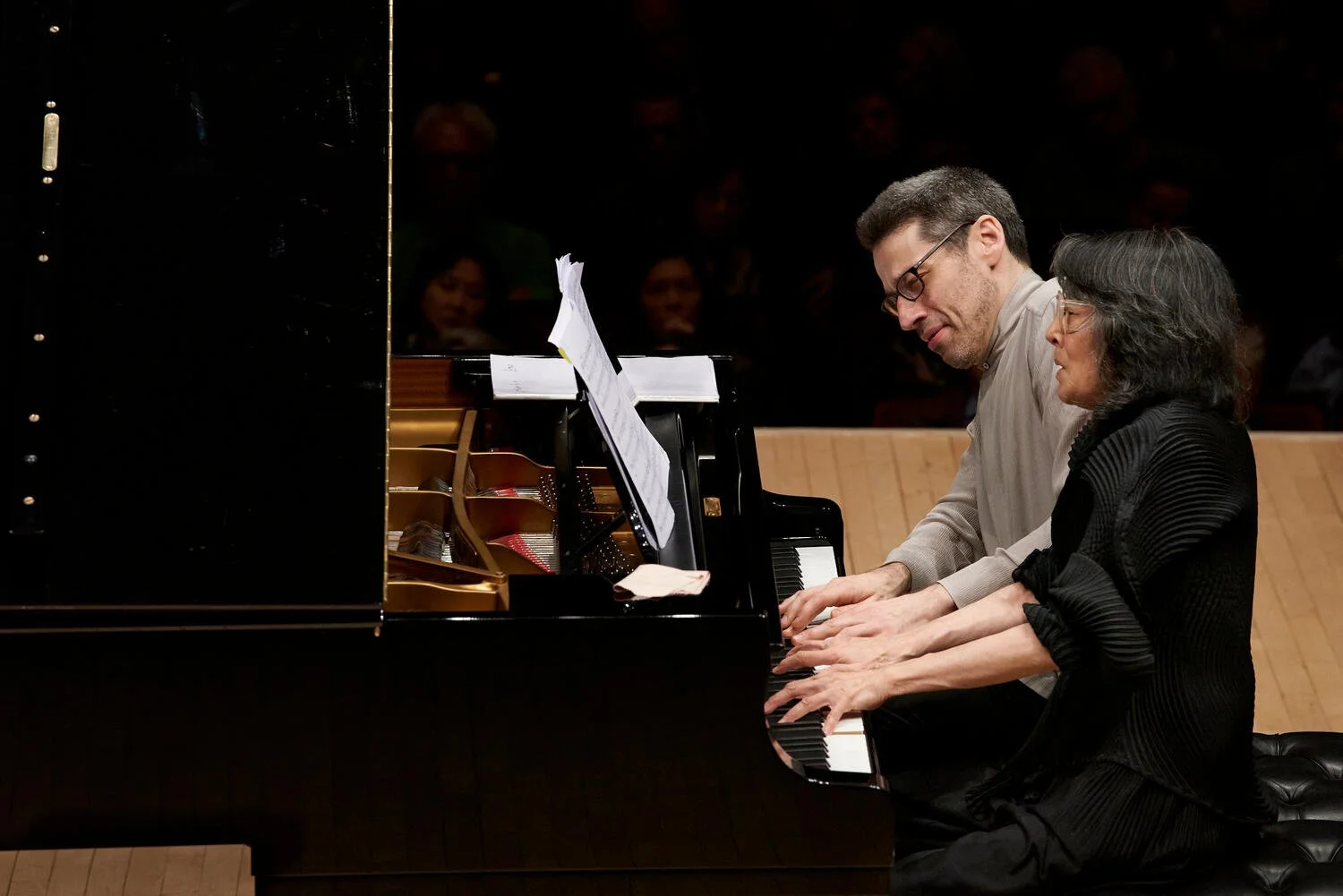REVIEW: Uchida and Biss Captivate in Schubert Duets
Above, Mitsuko Uchida and Jonathan Biss. Photo by Stefan Cohen.
April 9, 2024
Franz Schubert might have been taken aback to experience his compositions for piano four-hands presented, as they were Tuesday evening by two of today’s finest pianists, on the stage of Carnegie Hall’s Isaac Stern Auditorium. It’s become cliché to refer to the piano duet as the most intimate form of chamber music, and Schubert, who penned perhaps more music for the genre than any other composer (scratch that — a quick search of the internet’s Petrucci Music Library reveals that he was bested by longer-lived Carl Czerny — so let’s say “great” composer) was the one of the most intimate. But, if a solo piano can fill the hall (as it often does), then a few extra hands should only help, better to take advantage of the Steinway’s eighty-eight keys.
Yet a program entirely of Schubert, no matter the genre, skirts a slippery slope to slumber. His music for piano four-hands shares with his sonatas, trios, and other chamber music an expansive sense of form — single movements that last a quarter-hour, with generous repetition, and extended, reflective passages in similar textures.
Photo by Stefan Cohen.
But even the drowsiest listener would have been captivated by the refinement of artistry on display when Mitsuko Uchida and Jonathan Biss — co-artistic directors of the Marlboro Music Festival, and both distinguished interpreters of this literature — invited Carnegie Hall’s ghosts to listen in as they convened with Schubert. Kolesnikov and Tsoy revealed the intimacy of the piano duet earlier this season in Weill Recital Hall, with Schubert’s popular Fantasie in F Minor, D. 940. Uchida and Biss trotted out some lesser-known pieces, in a much larger chamber — seeming to float in outer space.
The duo rendered Allegro in A Minor, D. 947, “Liebensstürme;” Grande Marche No. 5 in E-flat Minor, D. 819; and Rondo in A Major, D. 951 as an evening of confessional Lieder. With the earnest craftsmanship of machine-workers, and the simple directness of two fine actors rendering Eugene O’Neil dialogue, the two pianists employed an expansive conception of the capabilities of the instrument.
They buried the lede, however, saving the most interesting piece for the second half: the Divertissement à la hongroise, D. 818, which foreshadows the spicier syncopations of Brahms and Dvořák. Trading the primo position for secondo — in the first half, Uchida “conducted” supportively from the secondo — the collaborators made expressive gestures out of ornamented, dancing melodies, and the tremolos (a novel pianistic effect in Schubert’s day) were strummed like a guitar.
In these four hands, Schubert’s reflective intimations became a travelogue into the inner reaches of the universe. An examination of the soul and desire. Time seemed to stop.
Photo by Stefan Cohen.







